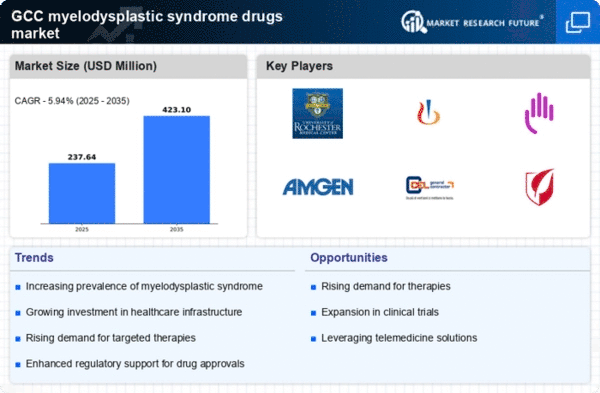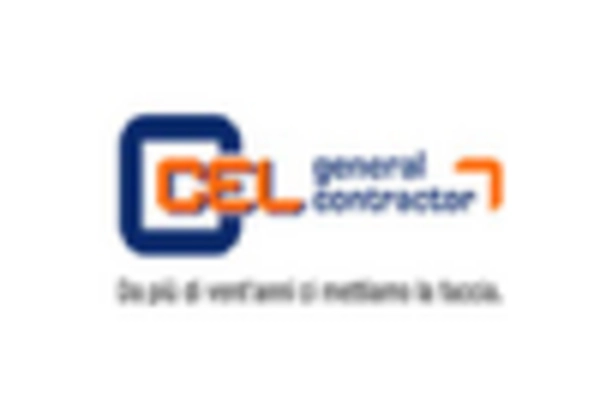Growing Investment in Biopharmaceuticals
The growing investment in biopharmaceuticals is a significant driver for the myelodysplastic syndrome-drugs market. The GCC region has witnessed a surge in biopharmaceutical investments, with funding reaching approximately $2 billion in recent years. This trend is largely attributed to the increasing recognition of the potential of biologics in treating complex diseases such as MDS. Biopharmaceuticals, including monoclonal antibodies and gene therapies, offer targeted treatment options that may improve patient outcomes. As more companies enter the biopharmaceutical space, the competition is likely to foster innovation and lead to the development of new drugs specifically designed for MDS. Consequently, the myelodysplastic syndrome-drugs market is expected to expand as these investments translate into novel therapeutic solutions.
Rising Awareness and Education Initiatives
Rising awareness and education initiatives regarding myelodysplastic syndromes are playing a pivotal role in shaping the myelodysplastic syndrome-drugs market. Healthcare providers and patient advocacy groups in the GCC are increasingly focusing on educating both medical professionals and the public about MDS. This heightened awareness is likely to lead to earlier diagnosis and treatment, which could enhance patient outcomes. Furthermore, educational campaigns are fostering a better understanding of the disease, thereby encouraging patients to seek medical attention sooner. As more individuals become aware of MDS and its symptoms, the demand for effective treatment options is expected to increase, thereby driving growth in the myelodysplastic syndrome-drugs market.
Advancements in Drug Development Technologies
Technological advancements in drug development are significantly impacting the myelodysplastic syndrome-drugs market. Innovations such as high-throughput screening, bioinformatics, and targeted therapies are enhancing the efficiency and effectiveness of drug discovery processes. In the GCC, pharmaceutical companies are increasingly investing in research and development, with expenditures reaching approximately $1.5 billion in recent years. These investments are aimed at developing novel therapies that address the unmet medical needs of MDS patients. Additionally, the integration of artificial intelligence in drug development is streamlining clinical trials and expediting the approval process, which may lead to a faster introduction of new treatments into the market. As a result, the myelodysplastic syndrome-drugs market is poised for growth driven by these technological advancements.
Increasing Incidence of Myelodysplastic Syndromes
The rising incidence of myelodysplastic syndromes (MDS) in the GCC region is a crucial driver for the myelodysplastic syndrome-drugs market. Recent studies indicate that the prevalence of MDS is increasing, with estimates suggesting that approximately 4.5 cases per 100,000 individuals are diagnosed annually. This growing patient population necessitates the development and availability of effective therapeutic options, thereby stimulating market growth. As healthcare systems in the GCC focus on improving patient outcomes, the demand for innovative drugs tailored to treat MDS is likely to rise. Furthermore, the aging population in the region, which is more susceptible to hematological disorders, contributes to the increasing burden of MDS, further propelling the myelodysplastic syndrome-drugs market forward.
Government Initiatives and Funding for Hematological Research
Government initiatives and funding for hematological research are crucial drivers of the myelodysplastic syndrome-drugs market. In the GCC, various health ministries are allocating substantial resources to support research aimed at understanding and treating blood disorders, including MDS. For instance, funding for hematology research has seen an increase of approximately 20% over the past few years. These initiatives not only facilitate the development of new therapies but also encourage collaboration between academic institutions and pharmaceutical companies. As a result, the myelodysplastic syndrome-drugs market is likely to benefit from enhanced research capabilities and the introduction of innovative treatment options that address the specific needs of MDS patients.
















